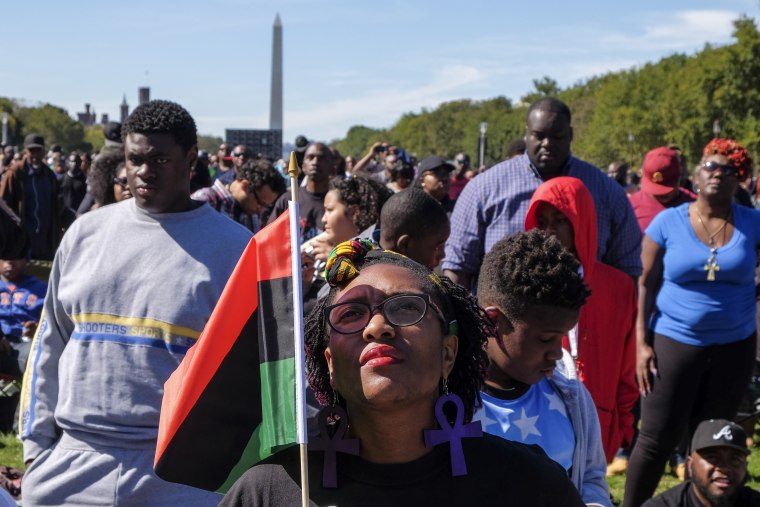When the Million Man March manifested in Washington, D.C. in 1995, nothing similar in scale or scope had been seen since the 1963 March on Washington. Under the theme of atonement, Minister Louis Farrakhan and the Nation of Islam had summoned a sea of Black men to encourage and affirm them, but also to hold them accountable for the state of their families and communities.
In 2005, the 10th anniversary Millions More Movement march called for Black, Latino, and Native American solidarity to further a list of social and political demands.
Saturday's 20th anniversary march, Justice or Else, took a more fiery tone and boasted a higher public profile than its predecessors. This is with significant thanks to social media, and the rise of the Black Millennials who wield it.
The little boys and girls watching the Million Man March grew into the adult anchors of Justice or Else. And like their fathers before them, these 20-and-30-somethings brought themselves and their children to the National Mall to stand for racial, social, and political justice in the United States.
These are some of their stories.
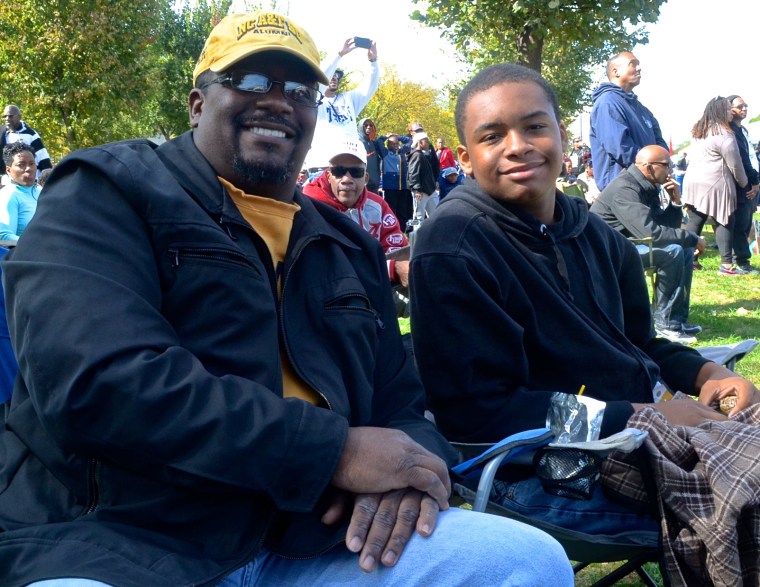
Christian and Myles Wright, Washington, D.C.
“Seeing this many people in one place—Black, Hispanic—it’s just one big happy family. My grandmothers had to deal with not being able to vote…my generation doesn’t have to deal with that kind of thing. We actually have a chance to do things that can do good. We’re getting better education, things are starting to change. If we keep on this pace, everything might be pitch perfect.”
“I came to the first one. It was an indescribable feeling…the brotherhood…it was like family. The [10th anniversary] Millions More Movement I brought him with me. It’s continuing history for me, and a new history for him. I understand now how the older generation felt to see young people. I’m almost hitting 50 and…I see a lot of these teenagers here, 20-somethings, and it’s very encouraging to seem them so involved. It’s very important that young kids and teenagers and 20-somethings really understand and get involved because I don’t think it’s going to stop here. There’s a lot of work to do.”
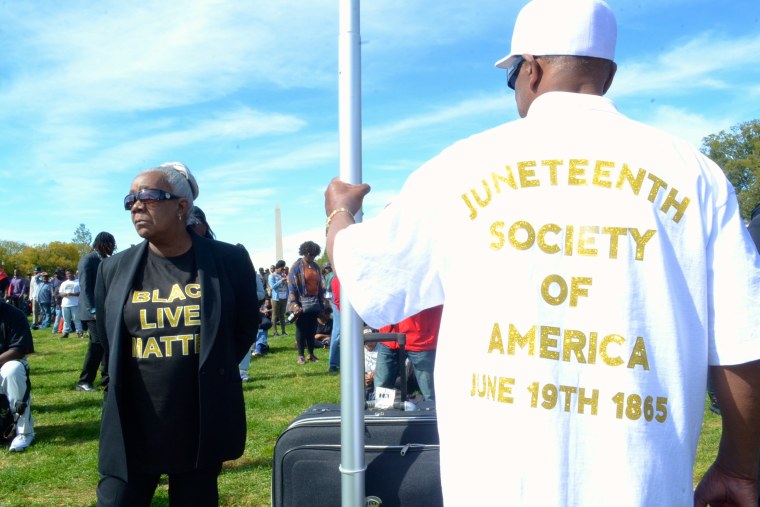
Woody “Mr. Juneteenth” Broadnax, Portland, OR (with Cynthia A. Jones, Seattle, WA)
“In 1995 [Black men] were inundated with lies. Lies that we could be nothing but a shoeshine boy…a dope fiend, a prisoner, or a pimp. Because of these lies, it stunted our growth and we didn’t take the opportunity to stand up as men. So in 1995, it was us older brothers. In 2015, this is about the Millennials who will take us into the future. Now that they’re killing us the way they are, when they’re marginalizing our children the way they are, we cannot afford…for your children to grow up with lies and misconceptions about who they are or what future lies ahead of them.”
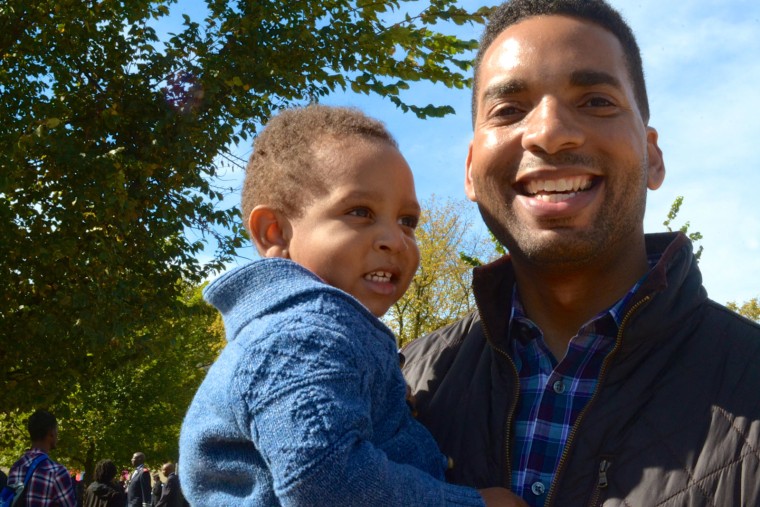
Matthew Boyd, Alexandria, VA
“I didn’t get a chance to come to the first march. At that time I was 10 or 11, so I was a little too young. But I do remember my mom and dad and other people talking about it, how powerful it was especially at that time in 1995, a few years after the Rodney King beating and other things that were going on in the nation. At that time, [I was] living in Indianapolis and being slightly sheltered…but as I got older I can see the structural racism that we have in our education systems, in our prison systems, in our policies, and things that we do. Today I wanted to come because I have my two-year-old son Alexander with me, and I wanted him to be able to see what the Million Man March is about, and all the people coming together for one cause.”
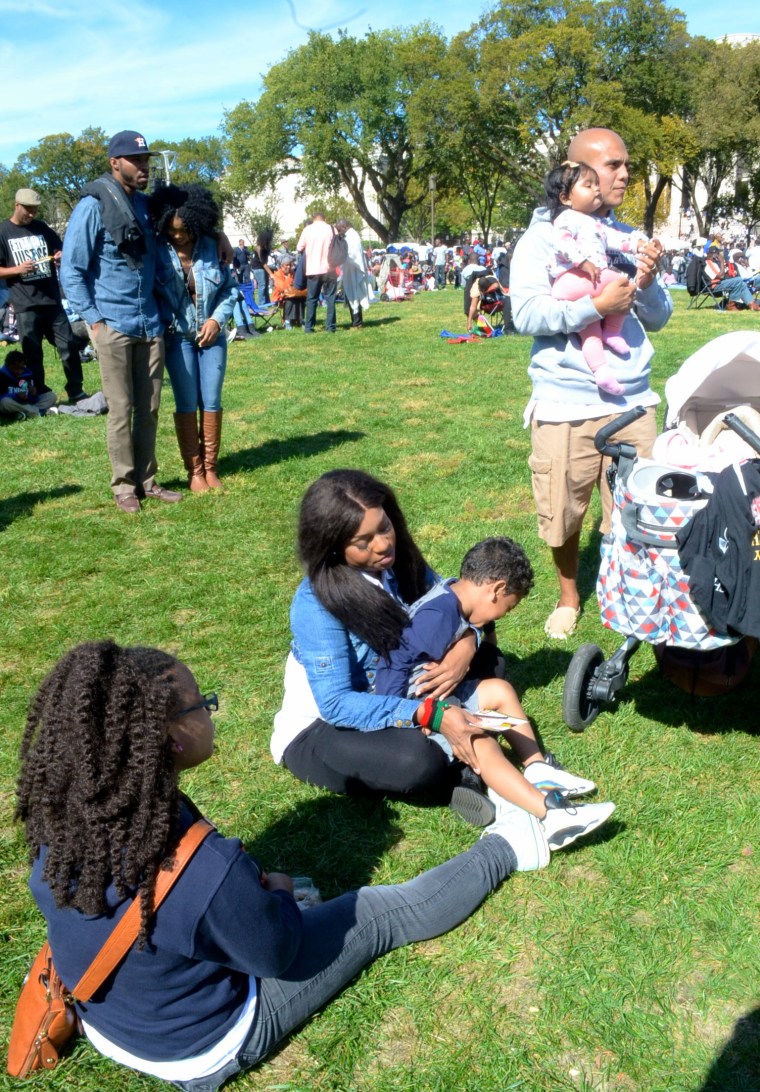
The Figueroa Family, Fort Lee Military Base, VA
“I don’t want my kids to fear for their lives in the future. I want them to be able to walk the street safely like anyone else’s child. I want my kids to be proud of who they are, and to know they are not in this world by themselves.”
“It’s important for our children to know their history—Black history. Being moved around to so many different cities, they’re not very culturally connected to anybody else. We were fortunate to be stationed close enough to [participate] today.”
“I have been thinking about how many people have fallen for rights, to be free, to have voting. I’m proud to be Black.”
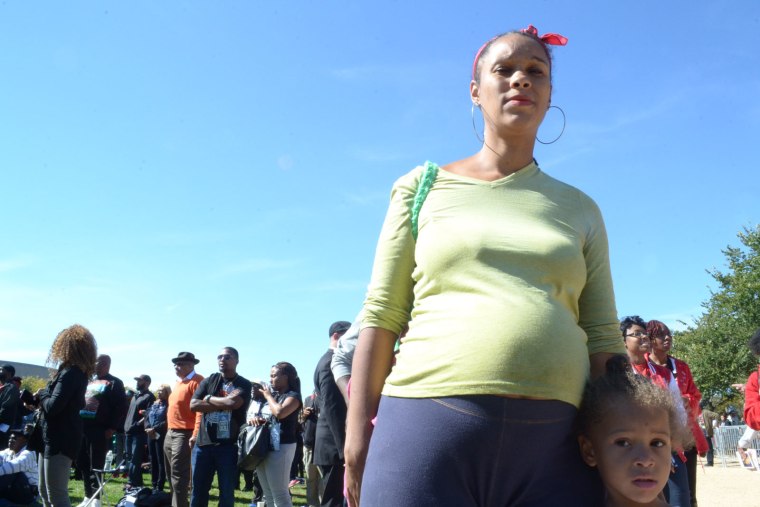
Genevieve Hardy, Alexandria, VA
“I’m 38 weeks [pregnant]. My daughters are two and three. I wanted them to be in an environment of likeminded people. I don’t usually get out much, but this is a special occasion. I remember [the original march], I remember feeling proud about how peaceful it was. Even if [my daughters] are not aware of what’s going on, I think children can pick up on vibes, and it’s positive for them to be here.”
